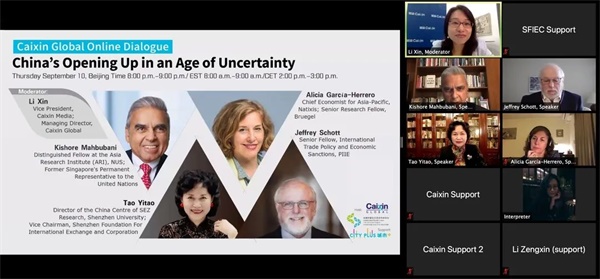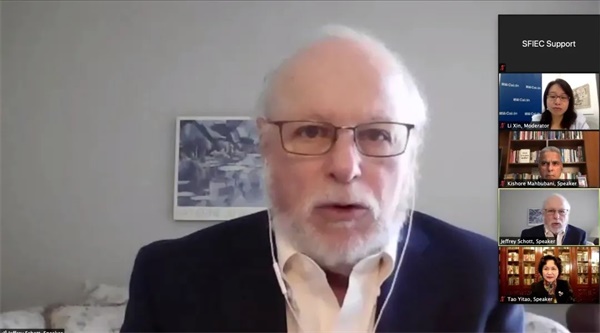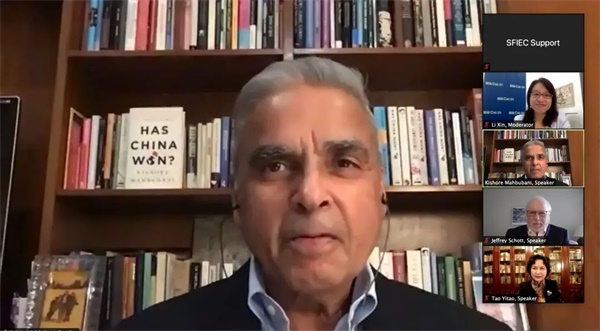

The United States and China should resist economic nationalism pressures and re-engage to find solutions to global concerns, including the Covid-19 pandemic and climate change, a U.S. State Department adviser told a Caixin online event Thursday.

Otherwise, said Jeffrey Schott, a member of the State Department's advisory committee on international economic policy, the "costly decoupling" between the two economies could spread from the tech sector to manufacturing and agriculture.
Schott, also a senior fellow specializing in international trade policy at the Washington-based Peterson Institute for International Economics, said the two countries needed to reach "some bilateral accommodation" to engage and cooperate to find international solutions to a number of "notable concerns."

He said the U.S. and China should be "avoiding the costly, inefficient decoupling of our economies right now as threatened in the high-tech sector. But that could spread across the board to both manufacturing and agriculture."
Schott said those concerns also included nuclear crisis on the Korean Peninsula, mitigating global greenhouse gas emissions, restraining Iran's nuclear programs, and developing and distributing Covid-19 vaccines and therapeutics.
"It's critical that the United States and China resist pressures to close and expand initiatives of economic nationalism to find solutions that benefit countries rich and poor," he added.
The comments came as tensions between Beijing and Washington remain high over a flurry of geopolitical, economic issues, including competing for dominance in advanced technologies, and regional security rivalry in the Taiwan Strait and South China Sea.

Kishore Mahbubani, a professor and founding dean of the Lee Kuan Yew School of Public Policy at National University of Singapore, also said at the same event "there will be a major U.S.-China geopolitical contest over the next decade or two. That's a given. Nothing can stop this."
In defeating the decoupling, Mahbubani said, China should "continue to integrate with the rest of the world," which would make it difficult for the U.S. to "decouple itself from the rest of the world that China's integrating itself with."
He suggested China should "continue with strong policies and continue to march forward towards globalization and maybe even consider joining things like CPTPP in addition to the RCEP."
The 11-country CPTPP originated from the Trans-Pacific Partnership (TPP), a trade pact promoted by former American President Barack Obama to help the U.S. counter China’s growing economic influence in Asia. China was excluded from the negotiations.
In May, during a press conference of the national legislature’s annual meeting in Beijing, Premier Li Keqiang confirmed that “China has a positive and open attitude toward joining the CPTPP.”
China aims to sign the Regional Comprehensive Economic Partnership (RCEP) mega trade deal involving 16 countries in East and Southeast Asia within the year.
来源/财新新闻
记者/Lu Zhenhua